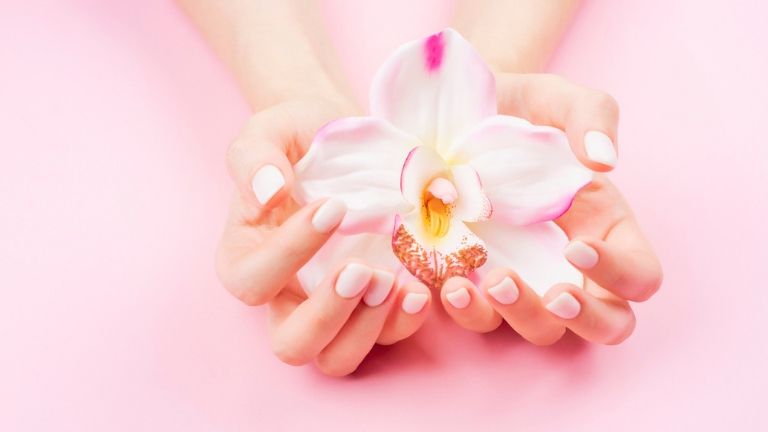Thrush symptoms may be embarrassing, but they’re also common. Consultant gynaecologist Dr. Fevzi Shakir has advice on a condition that affects three quarters of women
Thrush – it can be a right pain in the… you get the point. Although symptoms can be embarrassing, having thrush is actually quite common, says Dr Fevzi Shakir, with around 75 per cent of women experiencing it at least once in their lives. Many women can also suffer from recurrent thrush.
And it’s not just prevalent in women, thrush can affect men too. And just so you know, though thrush is not a sexually transmitted infection, it can be passed on through sex and can even be triggered by it.
Signs and symptoms of thrush
Some of the main symptoms of thrush include irritation and itching of the genitals, as well as soreness during intercourse. Thrush is also known to cause cystitis like symptoms, such as a burning sensation when passing urine.
If your discharge looks a bit like white cottage cheese, then Dr Shakir warns this could also be a sign you have thrush. The white cottage cheese discharge is not usually smelly.
Other common symptoms include:
- Odourless, thrush doesn’t have a smell
- Yellow or white discharge
- Thick discharge
- Sore and itchy vulva/vagina
- Burning during intercourse
- Burning when passing urine
Common causes of thrush
This is when you are more prone to thrush:
- If you are pregnant
- If you have finished a course of antibiotics
- If you have diabetes
- If you are on your period
- If you take birth control pills
- If you have an HIV infection
It is also important that you don’t use any perfumed soaps, deodorants or douches when cleaning your intimate area, ‘These can exacerbate the problem and in some instances, actually cause it,’ says Dr Shakir.
Other tips for avoiding thrush:
- Avoid stress and maintain a healthy lifestyle to keep your immune system strong
- Avoid high-sugar foods
- If you are taking antibiotics, consult your doctor before taking thrush treatments
- Change your tampons or pads frequently
- Ensure you wipe from front to back after going to the toilet
- Change your underwear after swimming and working out
- Avoid very hot baths
Treatments
It is important to see a healthcare professional to exclude other pelvic infections before commencing any treatment. If you’ve never had thrush before and you think you may have it, visit your doctor.
Once you recognise your own symptoms and you know they’re not serious, you can help deal with thrush independently at home. Thrush doesn’t take long to clear up once you’ve started correct treatment.
Your doctor can also prescribe antibiotics and creams to help kill the bacteria and soothe the area. Most women will require a combination of anti-fungal creams and pessaries to place in the vagina which will help to clear the thrush from inside and around the entrance of the vagina. These can be prescribed by your doctor or found at a local pharmacy.
Thrush doesn’t take long to clear up once you’ve started correct treatment
Wearing cotton underwear and avoiding sex until the thrush clears up is a good idea, suggests Dr Shakir, additionally using a condom during intercourse will stop the infection from spreading.
As mentioned previously, avoid using perfumed soaps, deodorants and refrain from douching. Use only water and emollient, such as an odourless cream from the chemist, instead of soap to wash your genitals.
If you are suffering from recurrent thrush, you will require long term treatment. This can take up to six months and uses a combination of pessaries, creams and tablets.
What are the risks of thrush?
Thrush will not stop you from getting pregnant. However, some of the symptoms may make having sex uncomfortable.
If you’re pregnant it’s completely natural for your hormones to change and affect your body – so your chances of getting thrush will increase.
If you’re pregnant or breastfeeding and you have thrush, speak to your doctor before taking any treatments.

He has completed a 2 year Senior Clinical Research Fellowship in Advanced Gynaecological Endoscopic Surgery, based at the Minimal Access Therapy Training Unit (MATTU) in Guildford.
In 2014 he was elected as a council member in charge of the trainee portfolio for the British Society for Gynaecological Endoscopy (BSGE) and re elected in 2016.
He has founded a trainee group as part of the BSGE called RIGS (Registrars in Gynaecological Surgery) aiming to improve training and resources.
Got a question for our gynaecologists? Email in confidence to editor@healthista.com
More Healthista Content:
9 nut butter obsessed Instagram stars share their snack hacks
Obsessed with peanut butter? You’re SO not alone
Got a pimple down there? When to worry and what to do
10 flattering swimsuits that you can actually move in
12 adult acne questions answered by this doctor who had it herself
Like this article? Sign up to our newsletter to get more articles like this delivered straight to your inbox.






















































